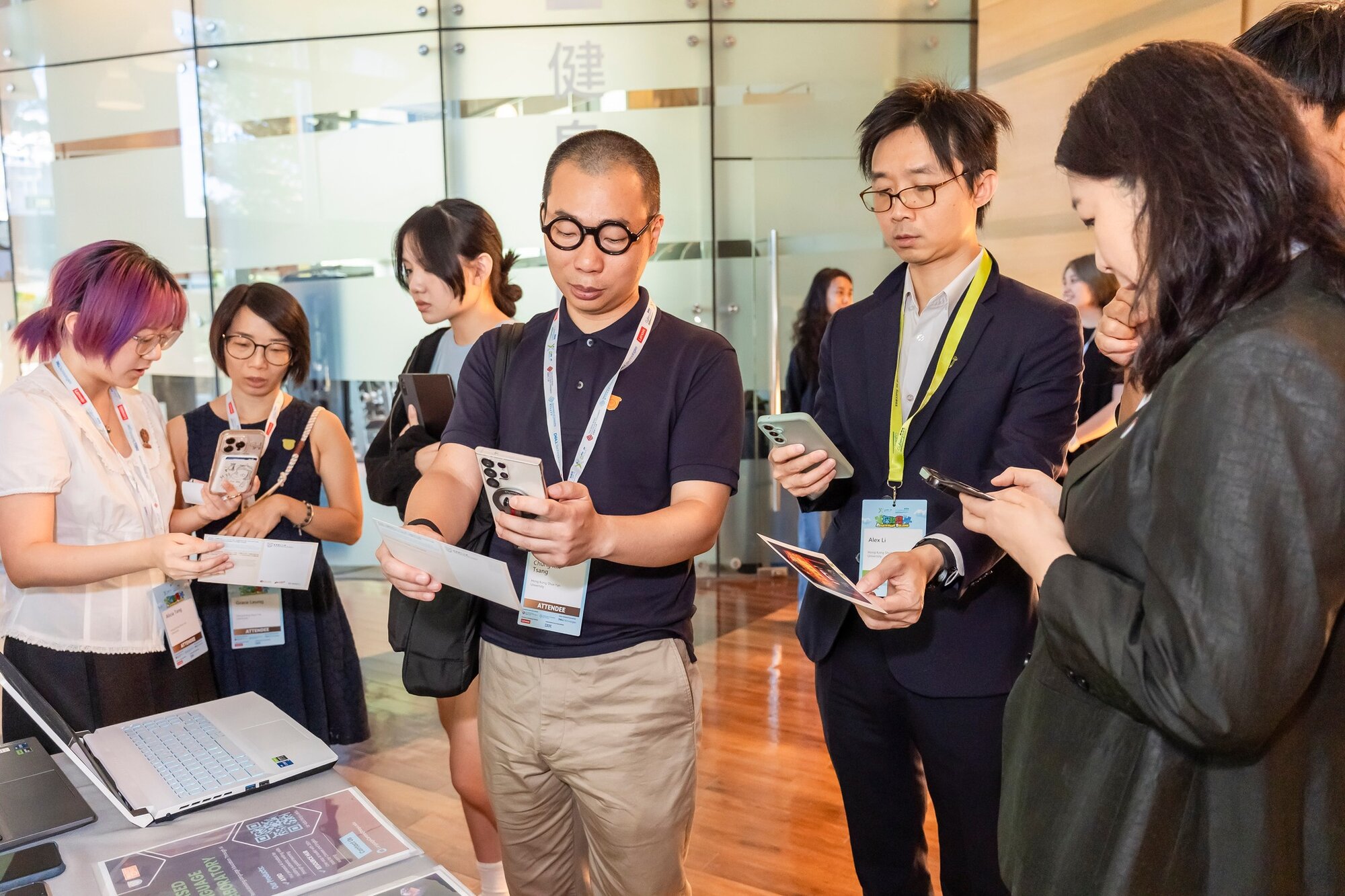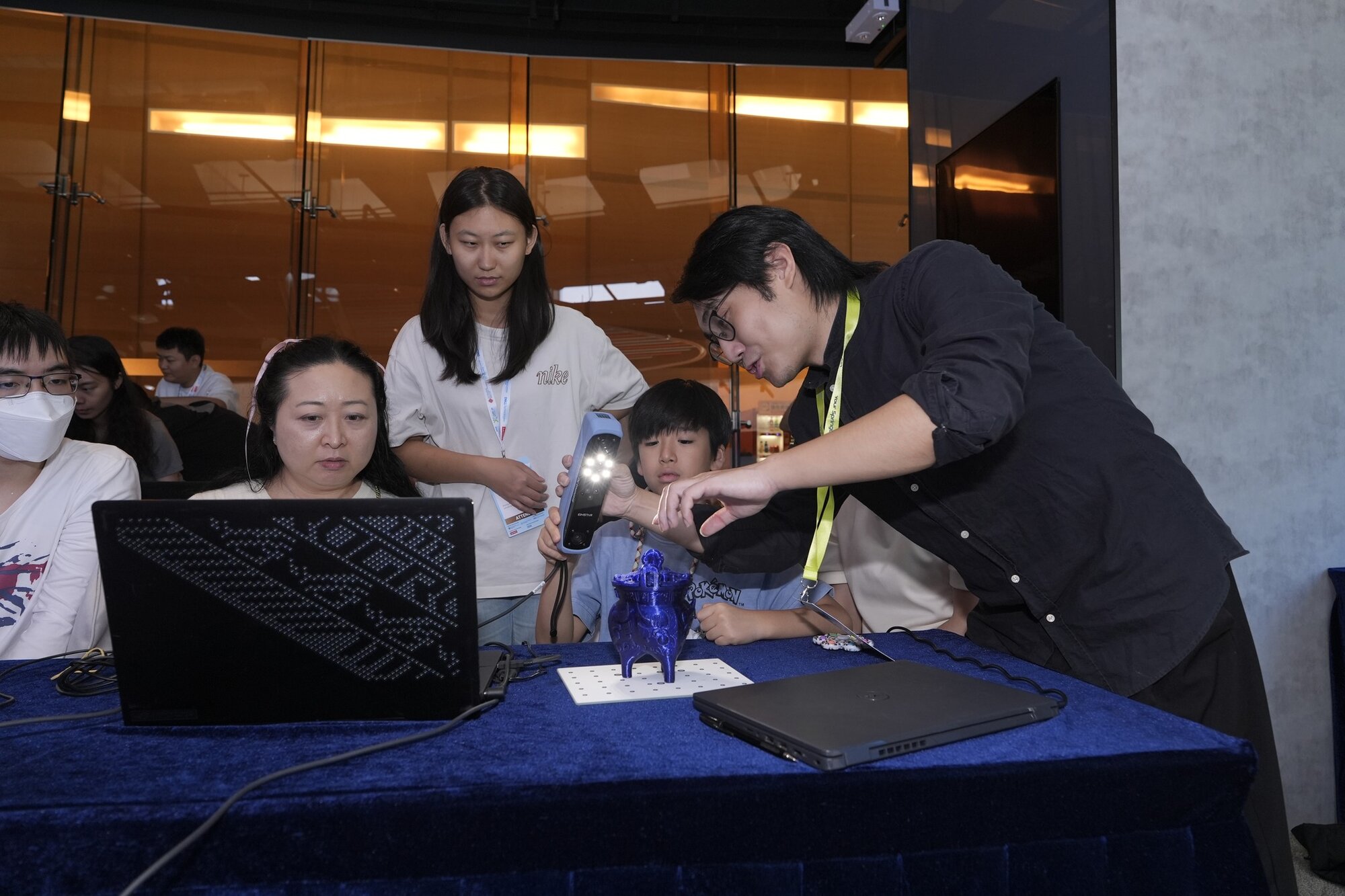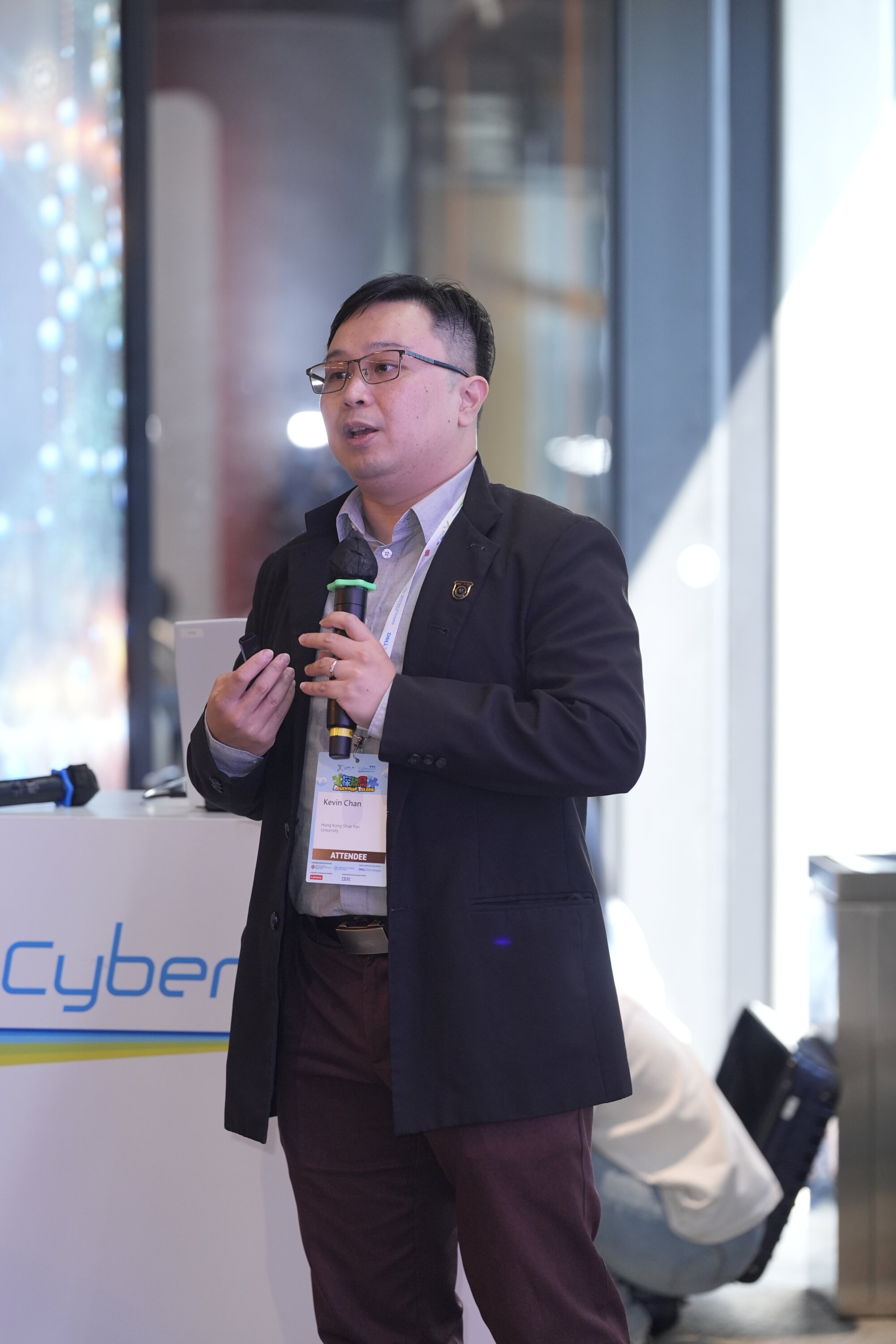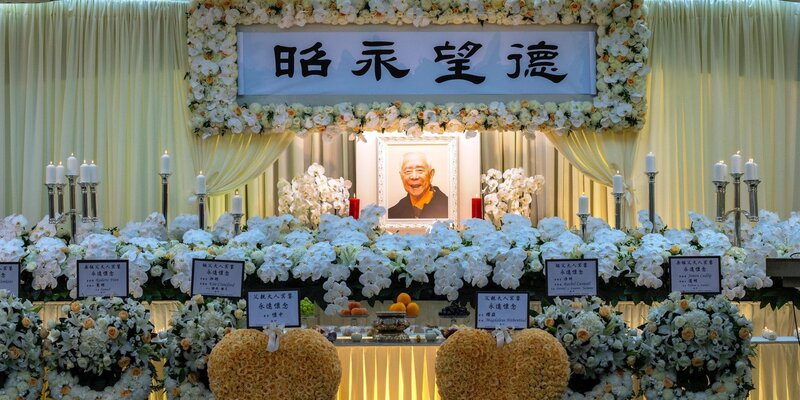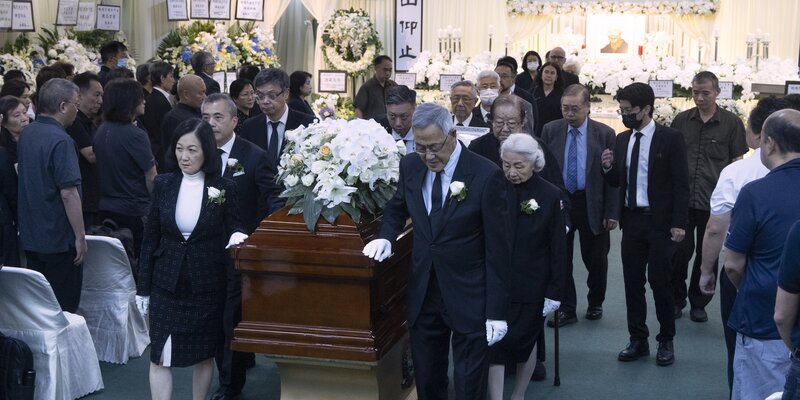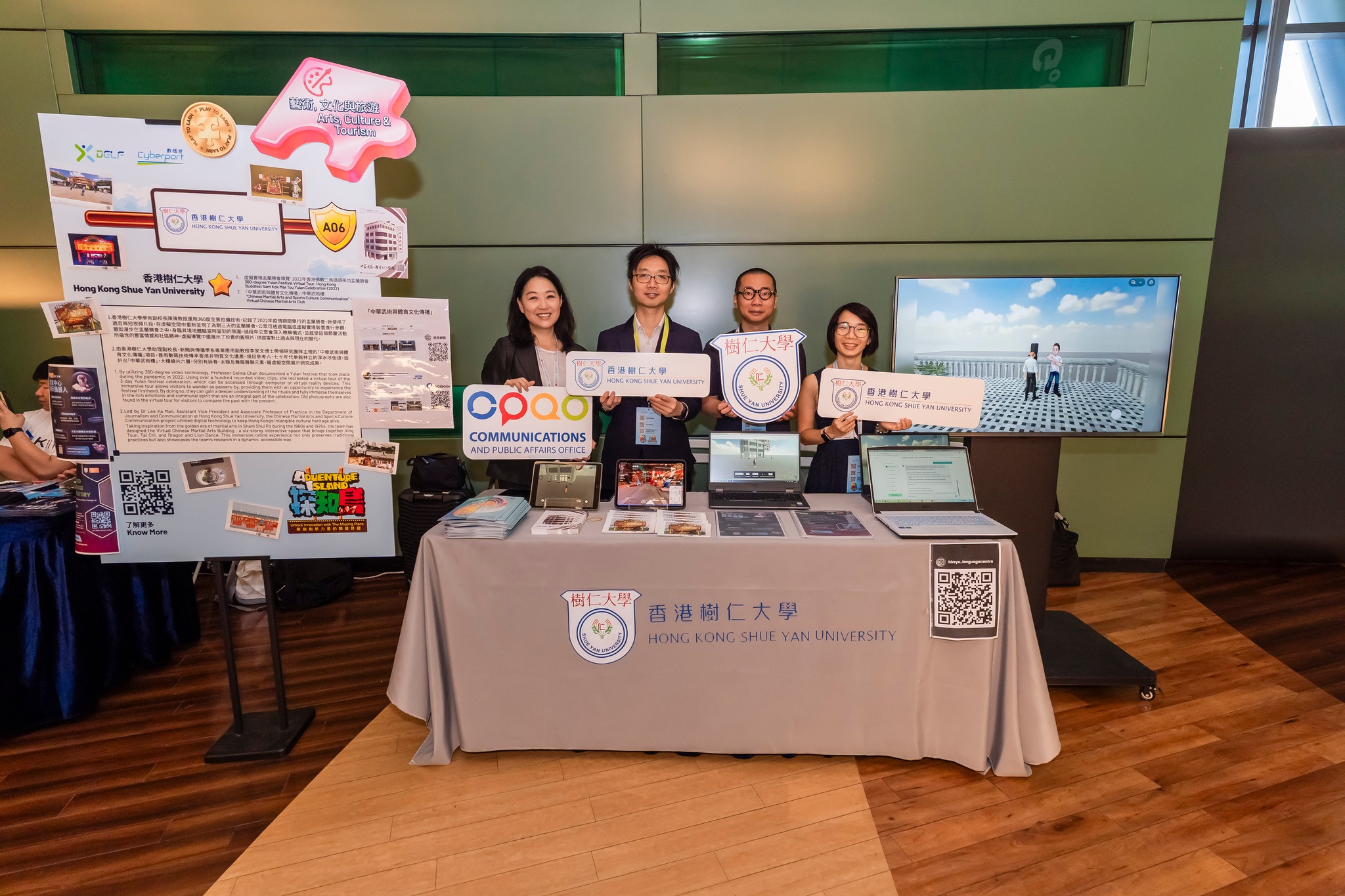
As one of the supporting institutions of Cyberport’s annual signature event, the Digital Entertainment Leadership Forum 2025 (DELF 2025), Hong Kong Shue Yan University (HKSYU) showcased a series of innovative teaching and learning outcomes. These interactive projects emphasized creativity and technology, enabling visitors to experience new applications of digital innovation pioneered by Hong Kong’s first private university.
Over the three-day event, HKSYU presented cross-departmental collaborations at its exhibition booth in Cyberport. Featured projects included the 360-degree Yulan Festival Virtual Tour, the Virtual Chinese Martial Arts Club, and an AI-powered Writing Assistant. Several scholars were present to engage with participants, including Dr Alex Li, Associate Academic Vice President (University Research); Dr Tsang Chung-kin, Associate Head of the Department of Sociology and Associate Programme Director of the Bachelor of Social Sciences (Honours) in Art, Culture and Technology; and Dr Grace Leung, Director of English Language Centre.
Among the highlights were two major research initiatives. The first, “Three Chaozhou Hungry Ghosts Festival: Research and Promotion”, led by Professor Selina Chan Ching , Academic Vice President, used VR technology to document and share local Yulan Festival traditions. The second, “Chinese Martial Arts and Sports Culture Communication”, led by Dr Lee Ka-man, Assistant Vice President, reconstructed martial arts heritage in immersive digital formats. The VR Yulan Festival Tour recreated the vibrant rituals of the Sam Kok Mar Tou community’s Yulan Festival in Hong Kong, while the Virtual Chinese Martial Arts Club digitally restored venues and associations such as the Chinese Martial Arts Dragon and Lion Dance Association of Hong Kong, China Limited, Ving Tsun, and Tai Chi Academies. Users could also interact with virtual martial arts masters who introduced the history of each tradition.
In addition, HKSYU offered interactive workshops for visitors. Dr Patrick Ke, Assistant Professor in the Department of Sociology; and Dr Kevin Chan, Director of the Language Centre (Chinese Section) and Assistant Professor in the Department of Chinese Language and Literature, explained how digital technologies are applied in their research. Heritage objects were scanned and transformed into 3D-printed models, providing new perspectives for the study of art and culture. Meanwhile, the AI Writing Assistant developed by HKSYU was demonstrated as a powerful tool to strengthen students’ academic writing, critical thinking, and research skills.
Through these initiatives, HKSYU underscored its commitment to integrating innovative technology with scholarship, enhancing students’ learning while advancing the preservation and promotion of Chinese culture and heritage in the digital age.
